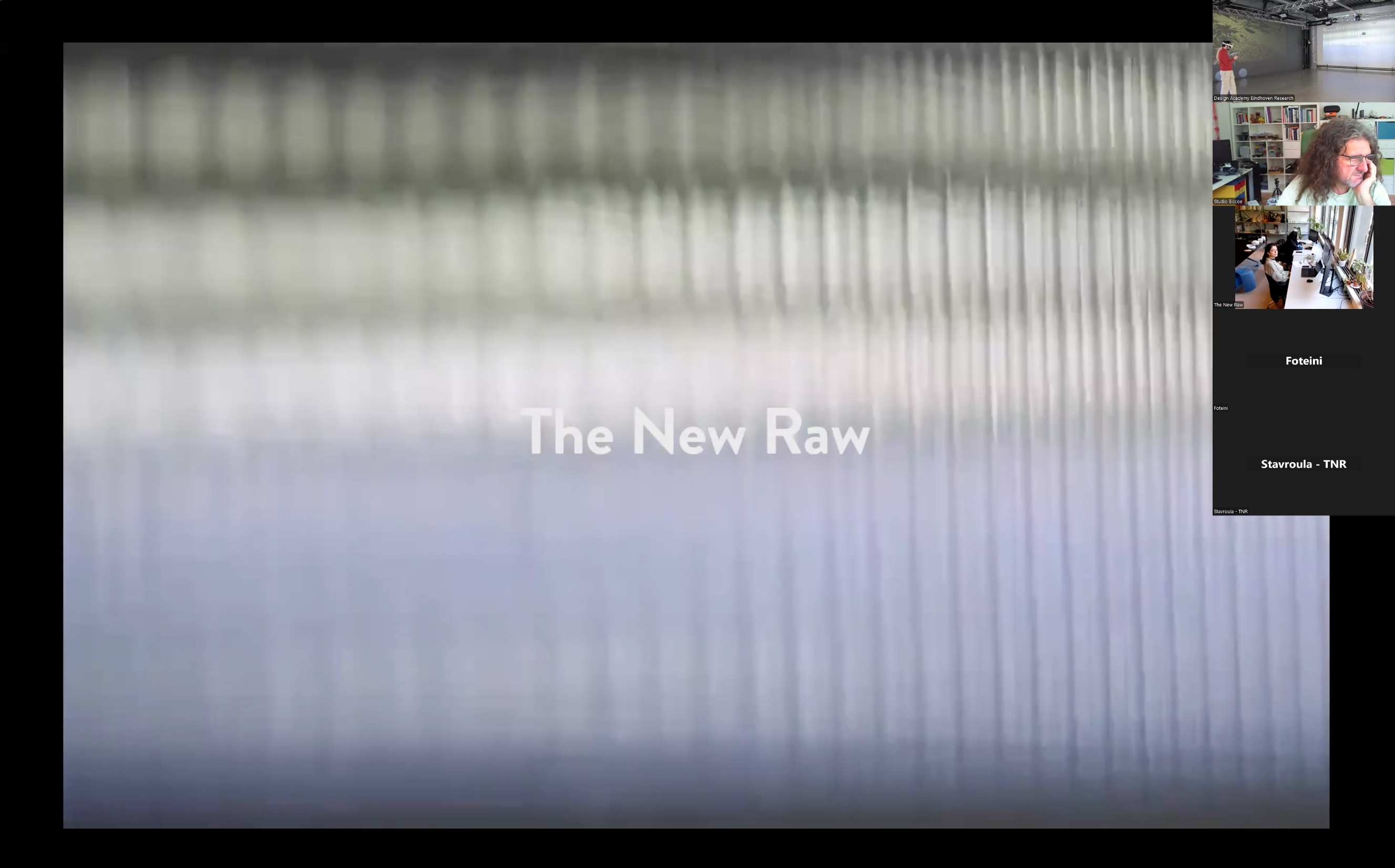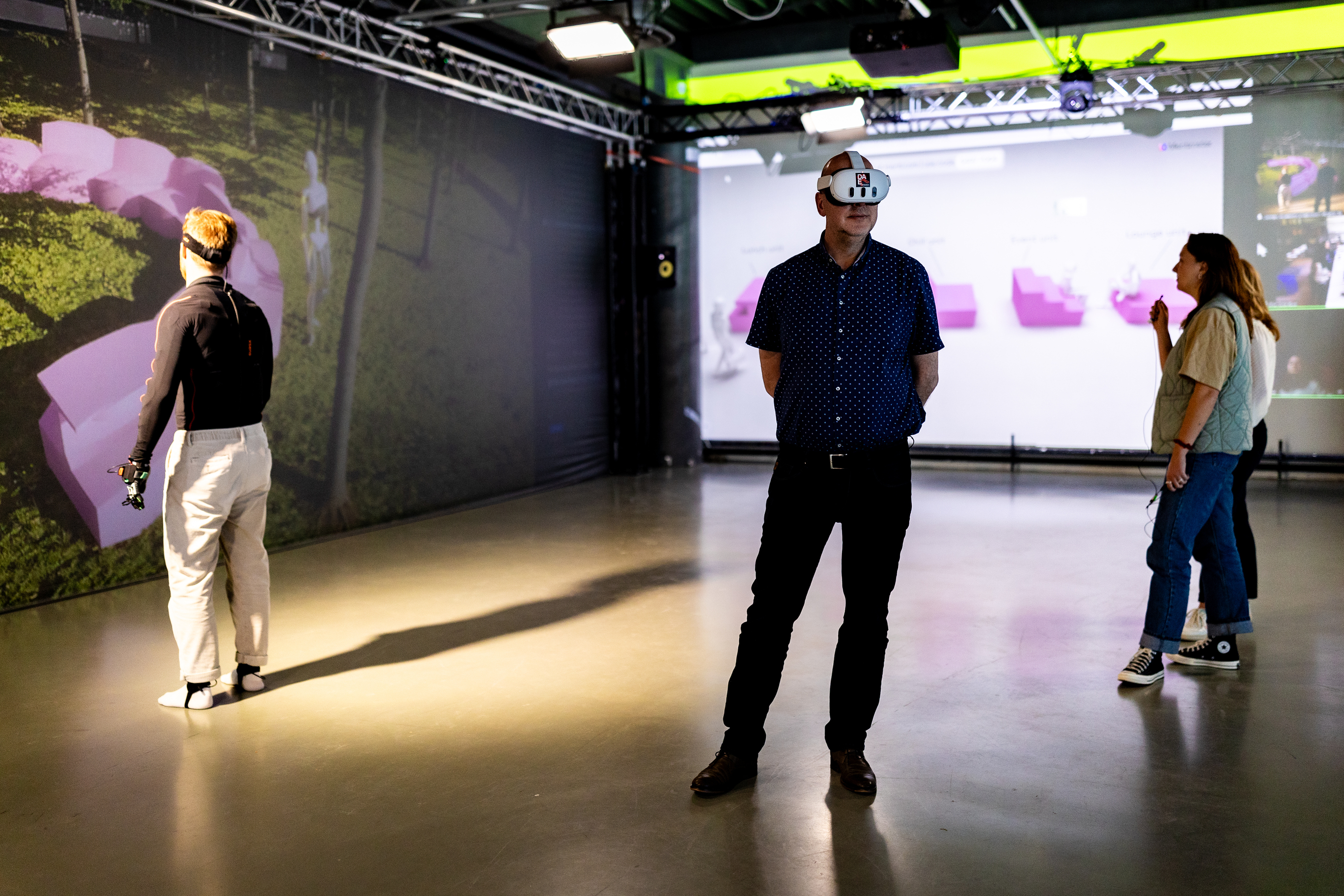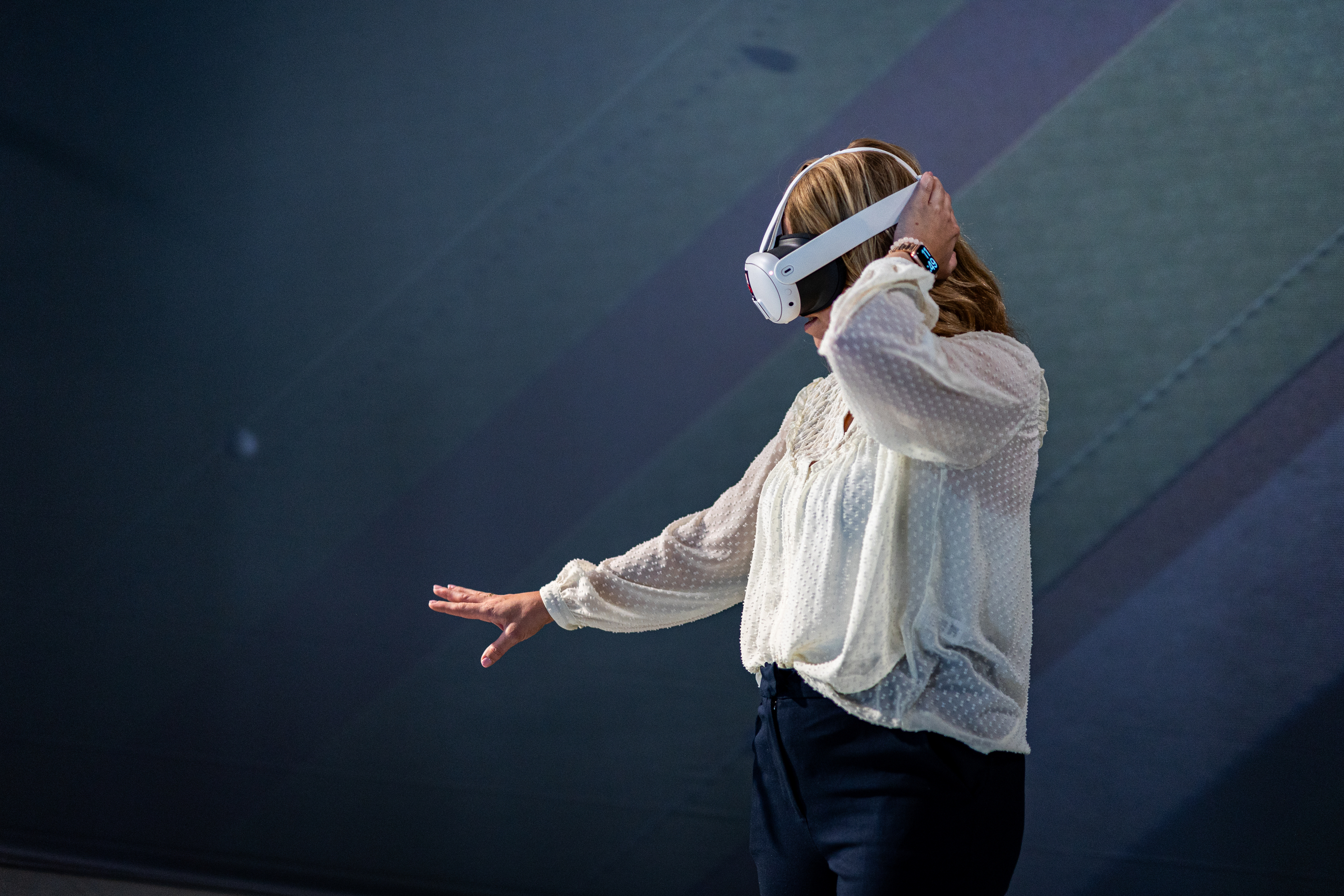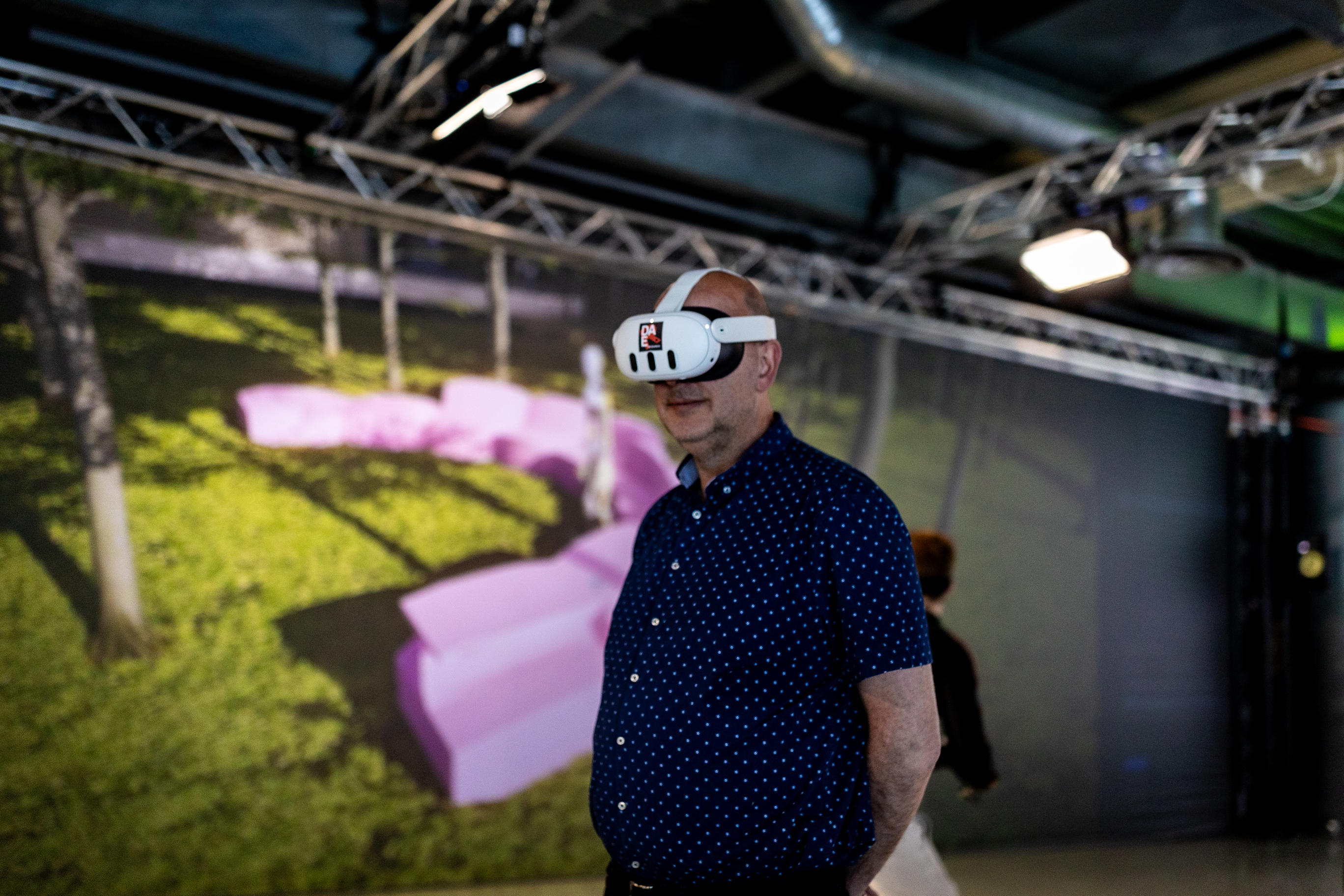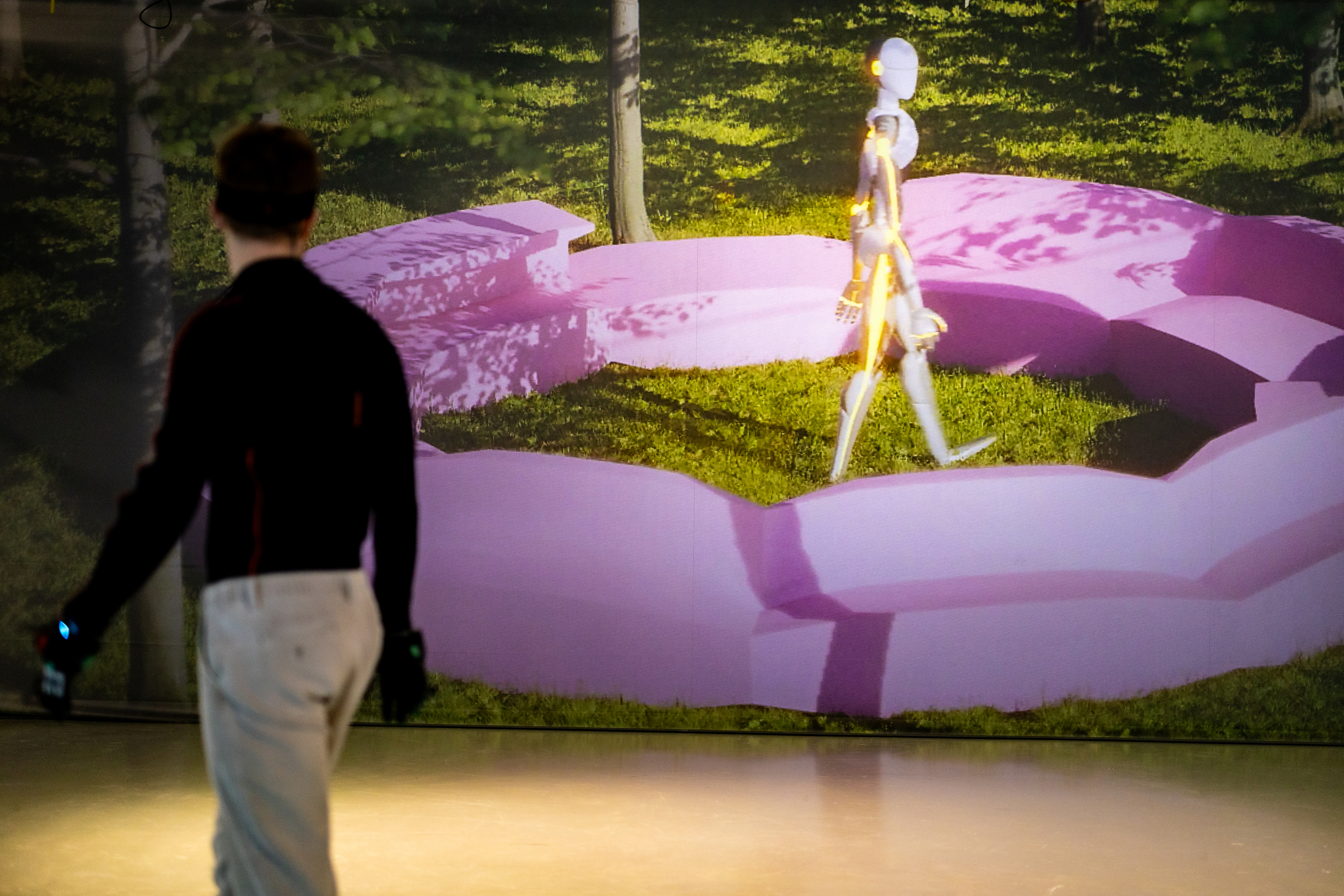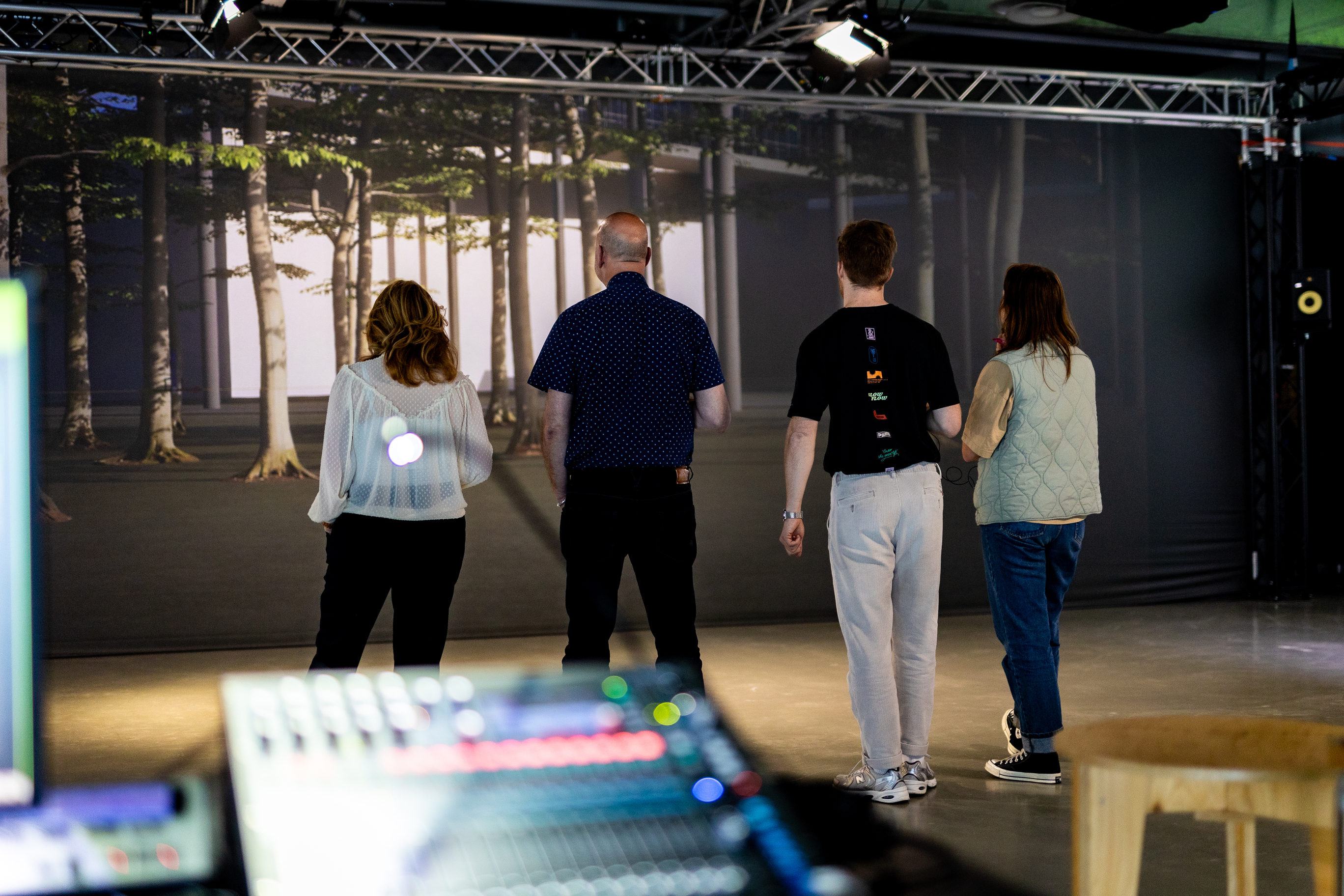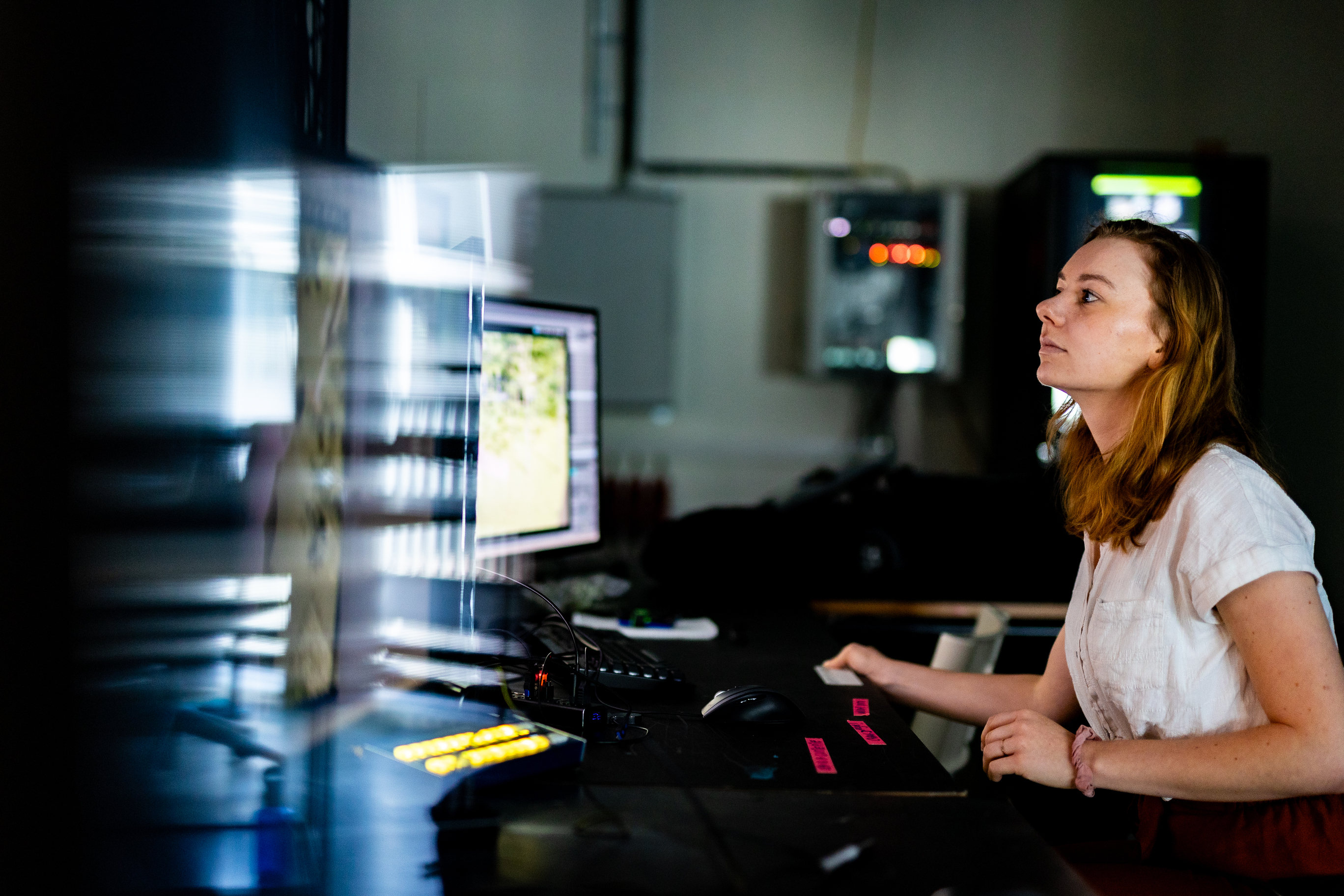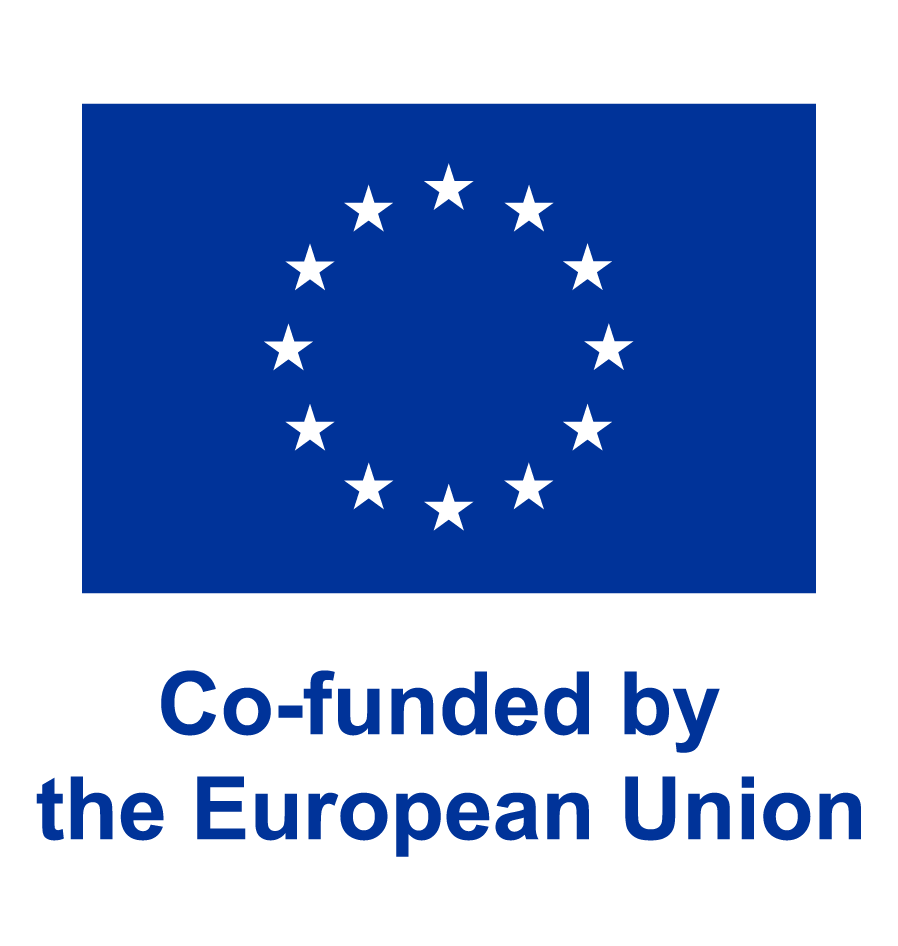NEWS
Last workshop!
DAE's Trans Realities Lab and their research partners are wrapping up their series of Hybrid Lab workshops. Here is a video that summarizes their latest research around distributed immersive environments and how they can be used for design collaborations at a distance. This research and its results will be published and showcased at several exhibition in the Netherlands and Germany. We will keep you posted on further developments!This project has been made possible through European funding from the Creative Europe Programme of the European Union.
Thank you to all of our partners as well and to HOY for the video.
HTC in DAE’s Trans Realities Lab!
The TRL was very happy to host (onsite) HTC’s stakeholder in this project and (online) The New Raw for a networked design session. It was an opportunity for The New Raw to directly ask HTC representatives questions regarding the design of their upcoming installation on 3EALITY’s site. Not only did we test many types of collaborative tools that day, we also put our immersive platform to the test; inviting HTC to suit up in Movella’s MOCAP suit and headset. This allowed them to walk in the digital twin of their campus and directly interact with the furniture designed and manipulated in real-time by The New Raw based on feedback during our design session.
June 2024
UAU project & Muthesius University first remote workshop
Muthesius University & UAU Project held their first networked workshop together. In Kiel, Muthesius gathered the community students, stakeholders, and neighbours, and together they brainstormed about what they felt the university’s square needed. Formalising their idea in lego and clay, they then transitioned their manifestation to the digital realm by 3D scanning them and showing them on screen to UAU. As the day went by, UAU, in their Warsaw studio, gave the group in Kiel a glimpse of their creative process and workflow using the Hybrid Lab platform and the custom Rhino and GrassHopper script that the research team created for it. We then all jumped in the digital twin of Kiel to see the designed UAU just parameterized and had very lively and embodied feedback session with the community on-site and online.
June 2024
June 2024
Photo credit : Du Zhang
Hybrid Lab & High Tech Campus Eindhoven collaboration official

High Tech Campus Eindhoven and DAE to collaborate through 3EALITY project. DAE’s Trans Realities Lab and 3EALITY will work together on the Hybrid Lab research project. Led by DAE to investigate the application of networked XR environments for distributed collaborative design. The project is supported by the Creative Europe Programme of the European Union.
3EALITY is an innovation hub that hosts multiple innovators working in spatial computing and immersive technologies, particularly digital twinning. As an innovation hub, its role is to support these innovators by showcasing their work, educating the market through events, and fostering connections between institutions, all while contributing to the growth of the Brainport Region of Eindhoven. In doing so, 3EALITY helps build a thriving ecosystem alongside over 300 other companies located in the Eindhoven High Tech Campus. “We anticipate a shift in the required skillsets of employees in the future. To support that shift, one of the goals with the 3EALITY hub is to connect with academic institutions, that apply digital twinning and immersive technology solutions with students in their research projects. That is why we are very happy to join Dr. Ian Biscoe’s research project. Additionally, we aim to bridge the creative and tech worlds through this collaboration.” Philipp Werle, Innovation Manager Emerging Tech at 3EALITY.
3EALITY is an innovation hub that hosts multiple innovators working in spatial computing and immersive technologies, particularly digital twinning. As an innovation hub, its role is to support these innovators by showcasing their work, educating the market through events, and fostering connections between institutions, all while contributing to the growth of the Brainport Region of Eindhoven. In doing so, 3EALITY helps build a thriving ecosystem alongside over 300 other companies located in the Eindhoven High Tech Campus. “We anticipate a shift in the required skillsets of employees in the future. To support that shift, one of the goals with the 3EALITY hub is to connect with academic institutions, that apply digital twinning and immersive technology solutions with students in their research projects. That is why we are very happy to join Dr. Ian Biscoe’s research project. Additionally, we aim to bridge the creative and tech worlds through this collaboration.” Philipp Werle, Innovation Manager Emerging Tech at 3EALITY.
May 2024
Hyrbid Lab’s second workshop and head’s up
On January 11 and 12, 2024, the Hybrid Lab partners met in Design Academy Eindhoven’s (DAE) Trans Realities research lab for their second workshop together. Muthesius University gave the group a crash course on digital and virtual identities, and for the first time, everyone had the pleasure of experiencing, together, the virtual platform designed by DAE. This Hybrid Lab workshop thus allowed its members, meeting physically in DAE’s research lab, to dive into virtual identities and explore the spatial and collaborative possibilities of the beta XR platform that has been developed at DAE.
Although this platform is an extended reality environment, allowing all collaborators to meet from remote locations and partake in real-time parametric design explorations, it was crucial for the teams to meet on-site for this workshop as the platform and the collaborative tools developed for it were still in beta form. Thus, asking for a lot of real-time and immediate feedback from everyone using it.
However, the two upcoming workshops will occur online, as the platform would, then, be sufficiently advanced in its design for the partners to use freely. And it will allow DAE to receive constructive feedback from other partners in regards to the user friendliness and approachability of the current platform.
Although this platform is an extended reality environment, allowing all collaborators to meet from remote locations and partake in real-time parametric design explorations, it was crucial for the teams to meet on-site for this workshop as the platform and the collaborative tools developed for it were still in beta form. Thus, asking for a lot of real-time and immediate feedback from everyone using it.
However, the two upcoming workshops will occur online, as the platform would, then, be sufficiently advanced in its design for the partners to use freely. And it will allow DAE to receive constructive feedback from other partners in regards to the user friendliness and approachability of the current platform.
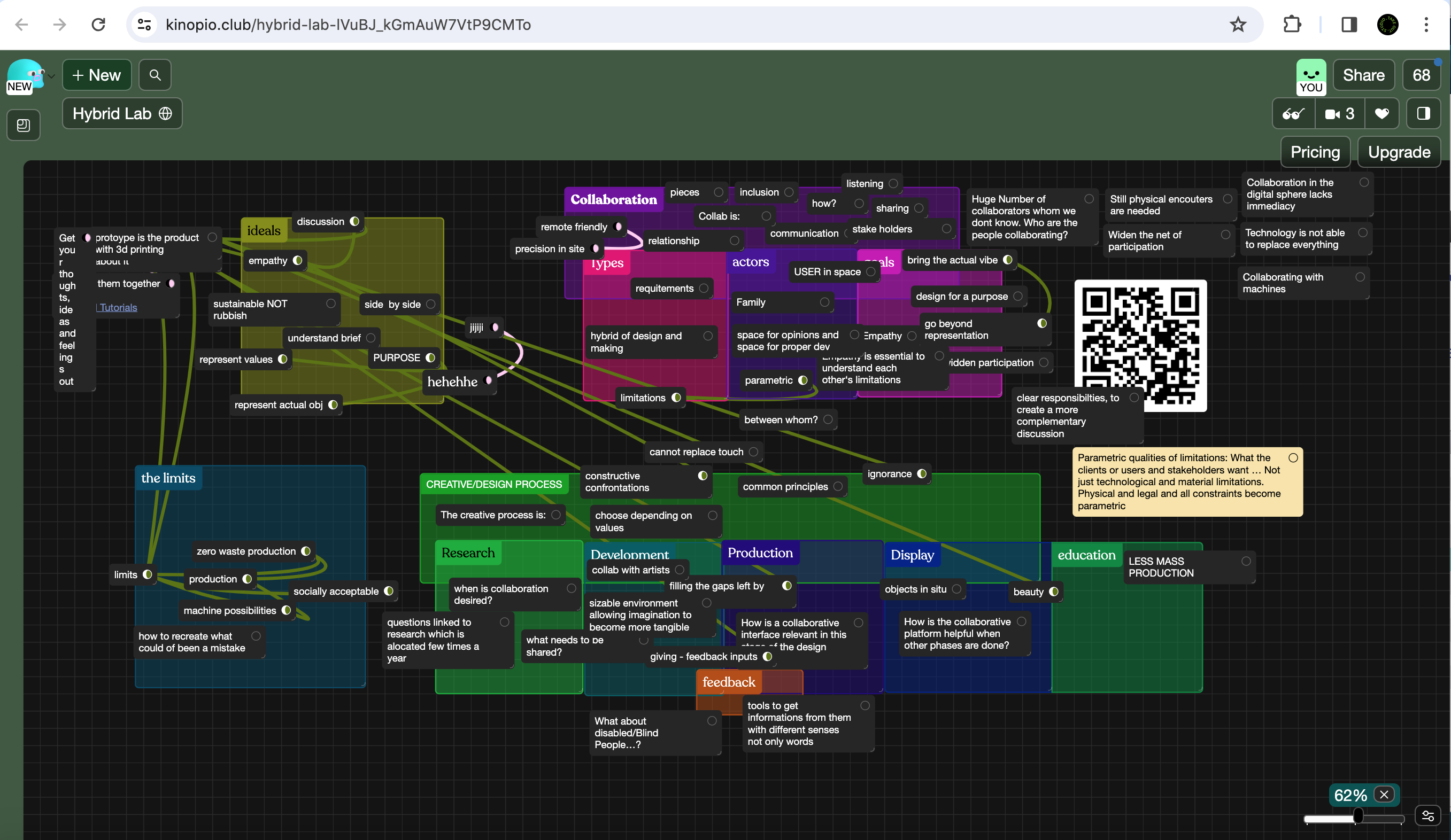
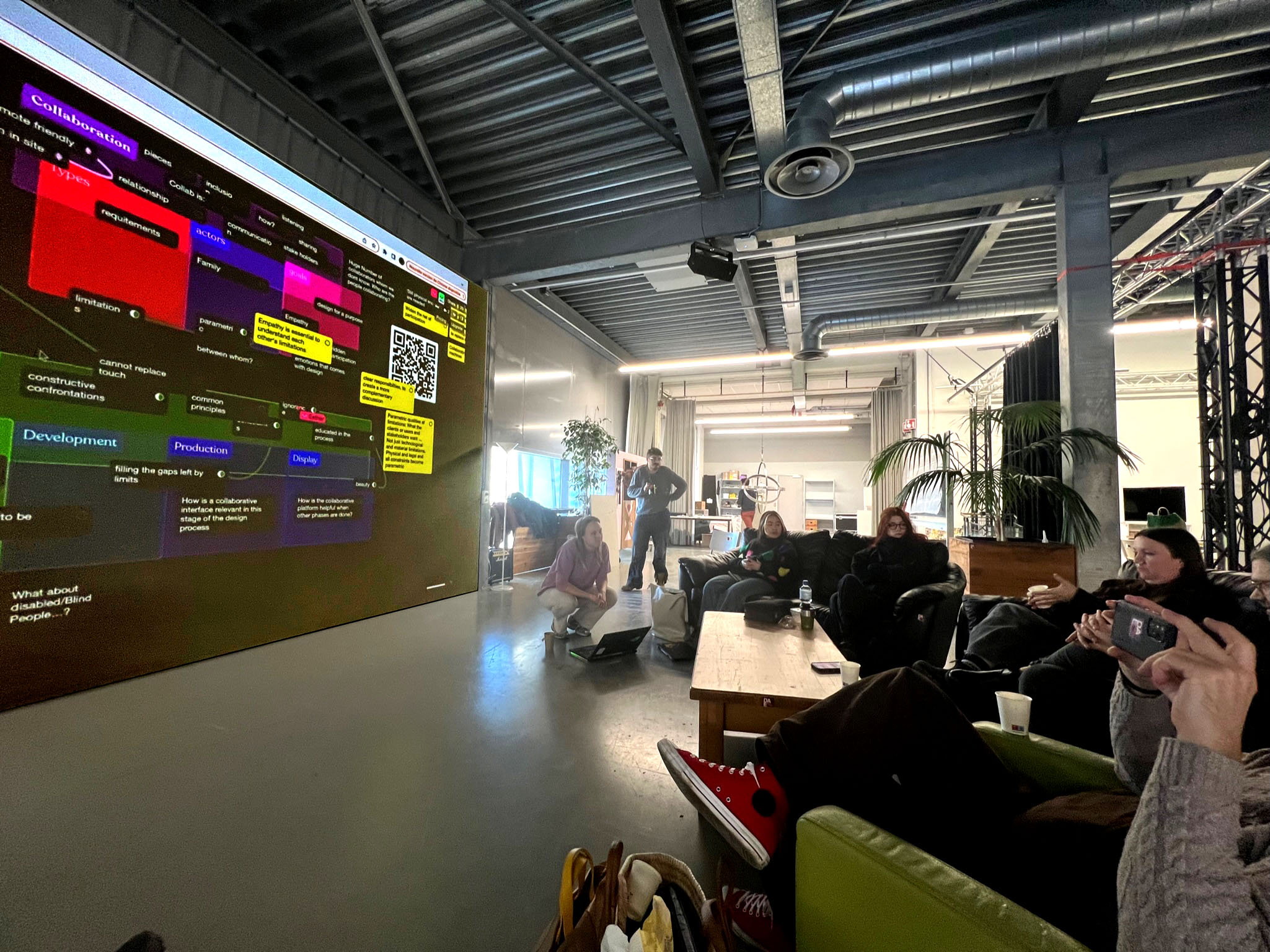
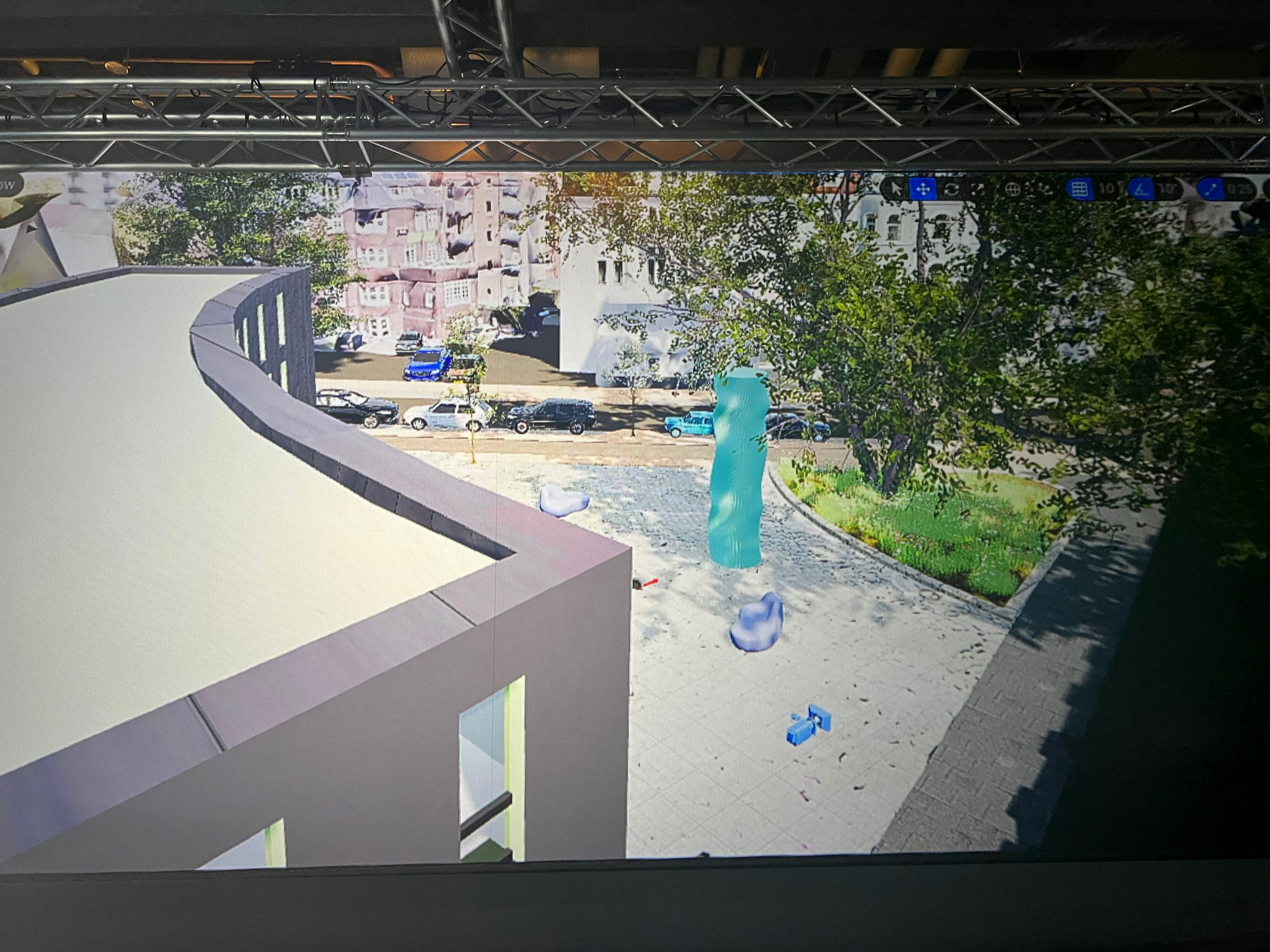

The Hybrid Lab partners will meet remotely for a third workshop. This workshop will be aimed at perfecting their collaborative virtual platform in order to be able to design an object for Muthesisus’ and DAE’s chosen physical sites.
January 2024
The Hybrid Lab platform is live!
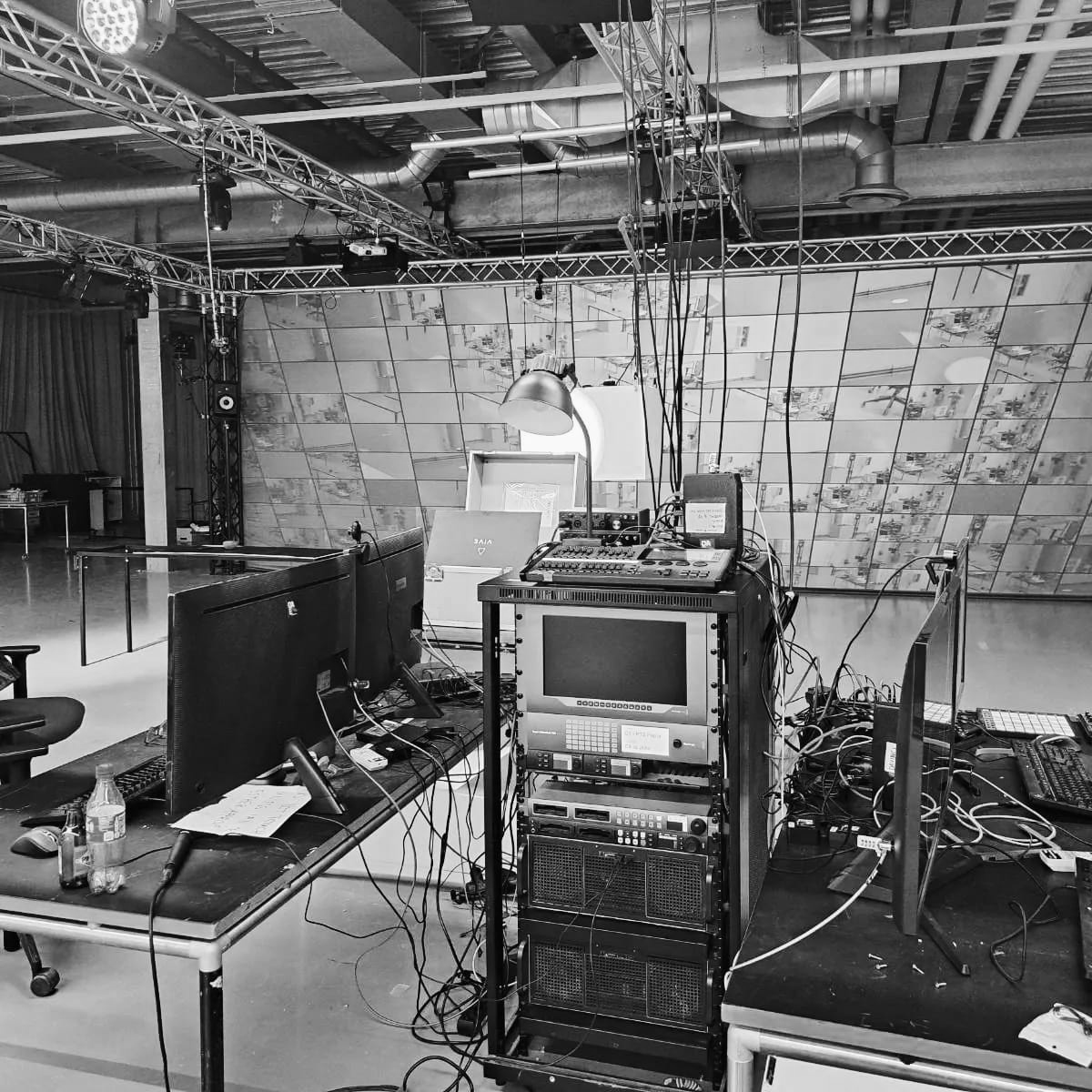 On May 15, 2023, the collaborative partners met for the online kick-
On May 15, 2023, the collaborative partners met for the online kick-
Central to this proposal is the design of the collaborative networked platform. Designed by DAE’s team, this extended reality environment will allow all collaborators to meet from remote locations and partake in real-time parametric design explorations. The platform will be tested by all the partners on the occasion of the second workshop in January 2024.
Usually, game worlds are places of imagination: they are situated in fictional universes where players can immerse themselves and feel like they have control over what they see, do, and feel. A player's decisions, depending on how a game world is designed, will affect everything around them. In that sense, the HYBRIDLAB platform is similar to game worlds, for our teams are wanting to design an environment where the imaginations of multiple collaborators can be unleashed and put together. Yet, it differs from game worlds as we focus on generating non-fictional environments; our platform will recreate existing physical environments through digital formalisation in order for the partners to be able to design for precise contexts without having to physically be there. The actions of each of these collaborators will have a direct impact on the piece they design together. We want this platform to allow real-time parametric design. In other words, all partners that are virtually present in the platform’s environment will have the possibility to view and edit the projects they’re working on together.
This platform will allow us to co-design and realise high definition objects that can be tested in life-like surroundings, thus enhancing the quality of design for the projects undertaken in remote and globalised contexts. Less fictional than Star Trek’s Holo Deck, the HYBRIDLAB platform will lead to more accurate designs being created while having to travel less throughout and between the locations of actvity, all the while seeing more remote collaborations flourish. It will also benefit many more than just designers, as a multiplicity of stakeholders from the public and private spheres will be able to connect to the platform and have various types of interactions with the projects being carried out there. This project also aligns with the New European Bauhaus’ initiative goals, such as: it is enriching; merging art, design, and (digital) culture; and responding to needs beyond functionality. It is sustainable by creating alternatives to polluting travel, but it is also inclusive because it encourages dialogues across cultures, disciplines, genders, and ages. This project also aligns with the European Green Deal by creating collaborative spaces where work can be accomplished with fewer emissions having to be emitted, leading to economic growth across Europe.
This platform will allow us to co-design and realise high definition objects that can be tested in life-like surroundings, thus enhancing the quality of design for the projects undertaken in remote and globalised contexts. Less fictional than Star Trek’s Holo Deck, the HYBRIDLAB platform will lead to more accurate designs being created while having to travel less throughout and between the locations of actvity, all the while seeing more remote collaborations flourish. It will also benefit many more than just designers, as a multiplicity of stakeholders from the public and private spheres will be able to connect to the platform and have various types of interactions with the projects being carried out there. This project also aligns with the New European Bauhaus’ initiative goals, such as: it is enriching; merging art, design, and (digital) culture; and responding to needs beyond functionality. It is sustainable by creating alternatives to polluting travel, but it is also inclusive because it encourages dialogues across cultures, disciplines, genders, and ages. This project also aligns with the European Green Deal by creating collaborative spaces where work can be accomplished with fewer emissions having to be emitted, leading to economic growth across Europe.
May 2023
Collaborative Design in Immersive Networked Spaces
A consortium, led by the Transdisciplinary Design Networks research progamme of Professor Ian Biscoe at Design Academy Eindhoven, has been awarded funding by Creative Europe to investigate the application of networked XR environments for distributed collaborative design.
The Hybrid Lab project is led by Design Academy Eindhoven, working with project partners Muthesius Kunstochschule in Germany, The New Raw in the Netherlands, and UAU Project in Poland. The research initiative is supported in part by the European Union’s Creative Europe Programme.
Dr. Biscoe commented: “The Hybrid Lab team will explore and establish new ways by which designers can leverage the affordances of technological networks and immersive environments to improve geographically dispersed collaboration and communication. The aim is that designers will be able to collaborate across locations, with other team members and clients, without the need to travel more.
This will be achieved by working in locally accessed shared immersive environments that are distributed across the network, ones where design process and client locations come together in real-time for all members of the team.”
The Hybrid Lab project is led by Design Academy Eindhoven, working with project partners Muthesius Kunstochschule in Germany, The New Raw in the Netherlands, and UAU Project in Poland. The research initiative is supported in part by the European Union’s Creative Europe Programme.
Dr. Biscoe commented: “The Hybrid Lab team will explore and establish new ways by which designers can leverage the affordances of technological networks and immersive environments to improve geographically dispersed collaboration and communication. The aim is that designers will be able to collaborate across locations, with other team members and clients, without the need to travel more.
This will be achieved by working in locally accessed shared immersive environments that are distributed across the network, ones where design process and client locations come together in real-time for all members of the team.”

Over the next two years, the Hybrid Lab research project will deploy a networked XR (eXtended Reality) environment in which a series of design-build challenges will be executed by our teams and members of the public. We aim to design and test a real-time platform for future design scenarios, one where distanced collaborations between researchers, designers and clients are made easier and greener, with higher quality and waste free results.
Design Academy Eindhoven (DAE) will provide the networked XR environment platform (which can be considered a private “Metaverse”, or “Intraverse” environment) and knowledge around the use of such technologies. Muthesius University (Kiel) will advise and conduct research concerning social interaction and identity in collaborative immersive environments. UAU Project (Warsaw) and The New Raw (Rotterdam) are design studios who work extensively with parametric design methodologies and 3D printing: each studio will develop and test new “urban furniture” in immersive Digital Twins that are hosted within the Hybrid Lab networked environment. The outcome of the design collaborations will then be manufactured and situated in physical space.
March 2023
Prepping for Networked environments @ SURF


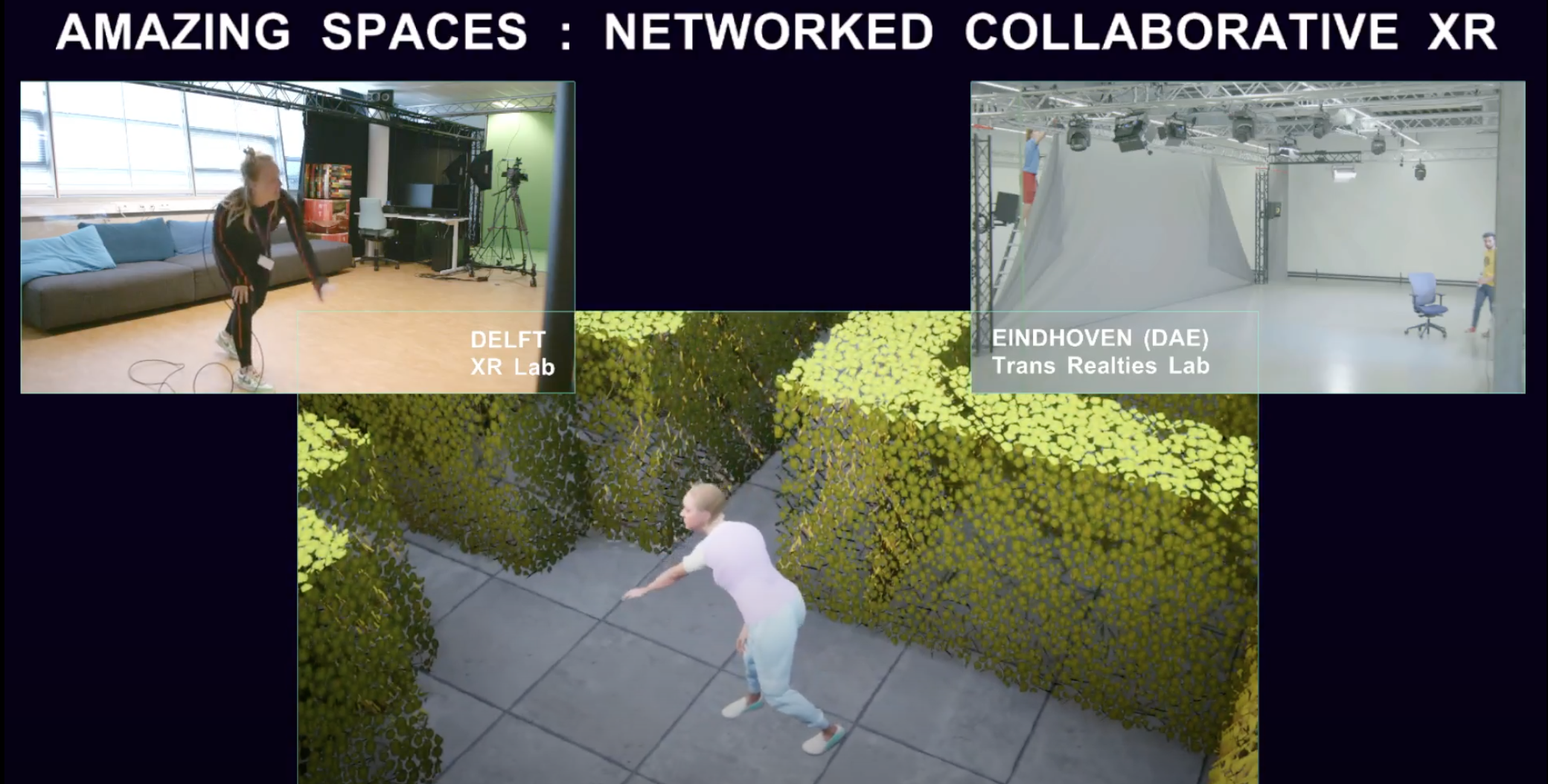



SURF kindly invited DAE’s research team to test networked connection using MOCAP suits and live capture tools. DAE’s TRL lab and SURF location in TUdelft were both connected through an immersive environment created in Unreal Engine.
November 2023
The New Raw & HTC in DAE’s Trans Realities Lab
Happy news!
Happy news!
